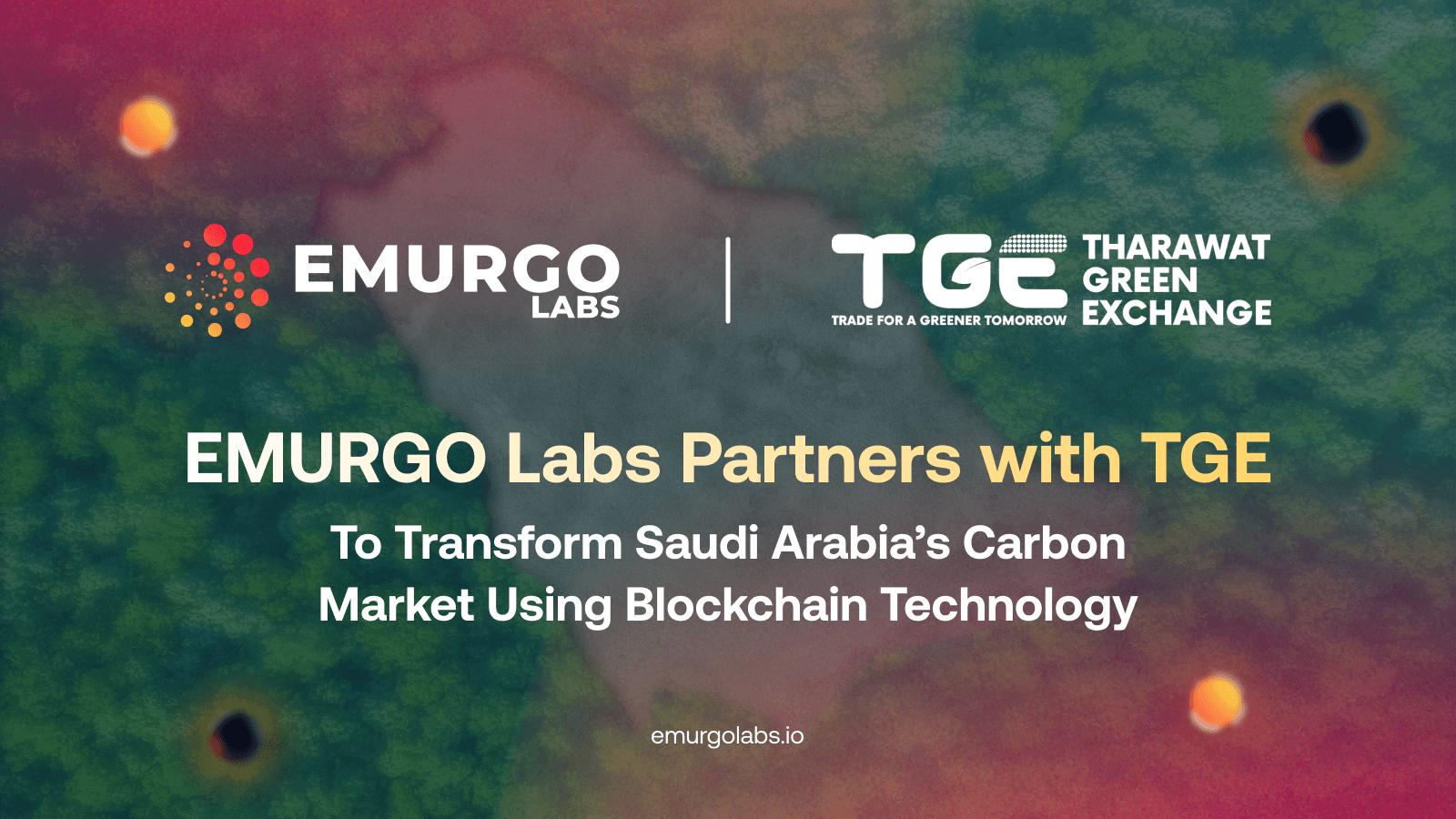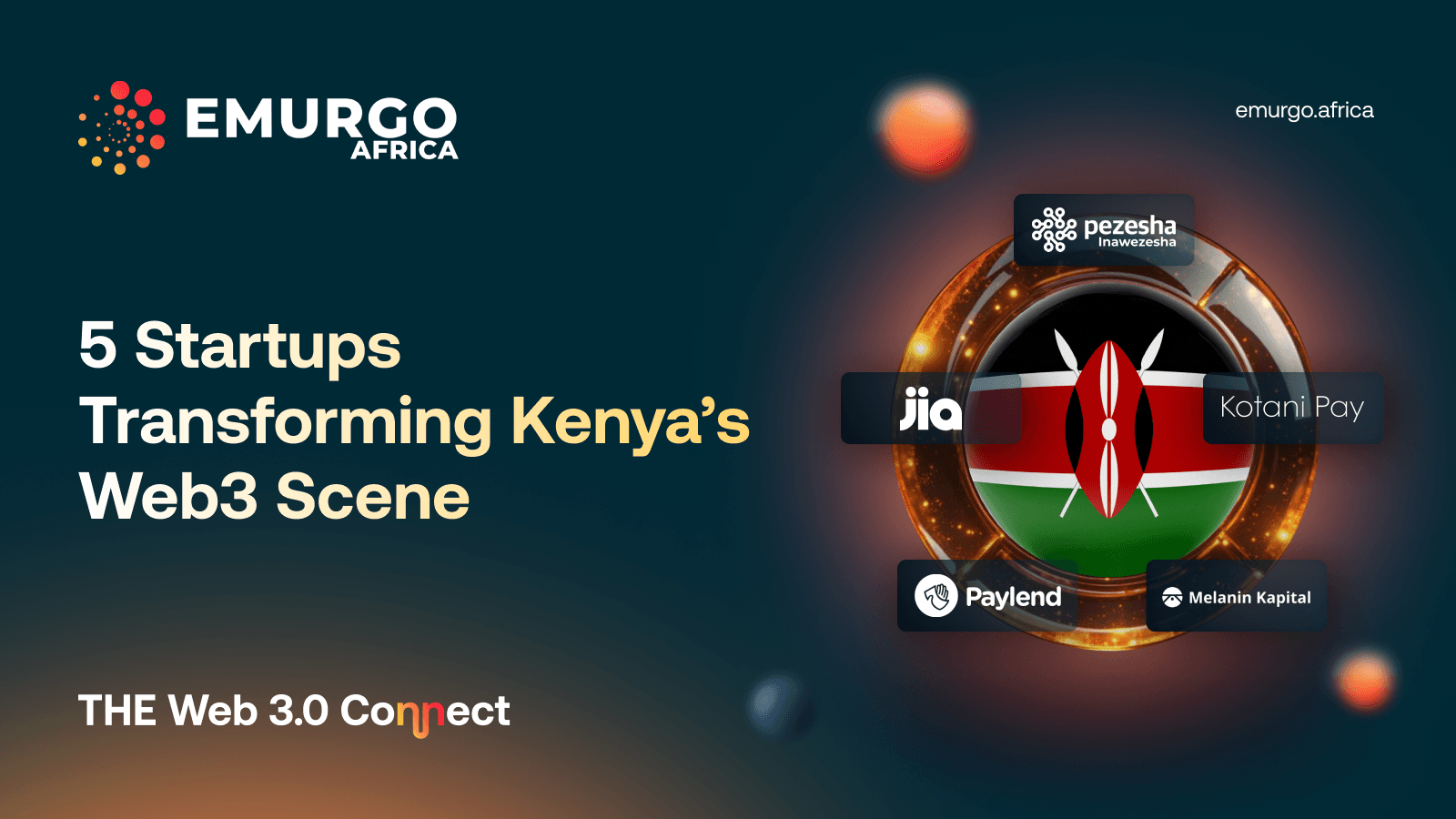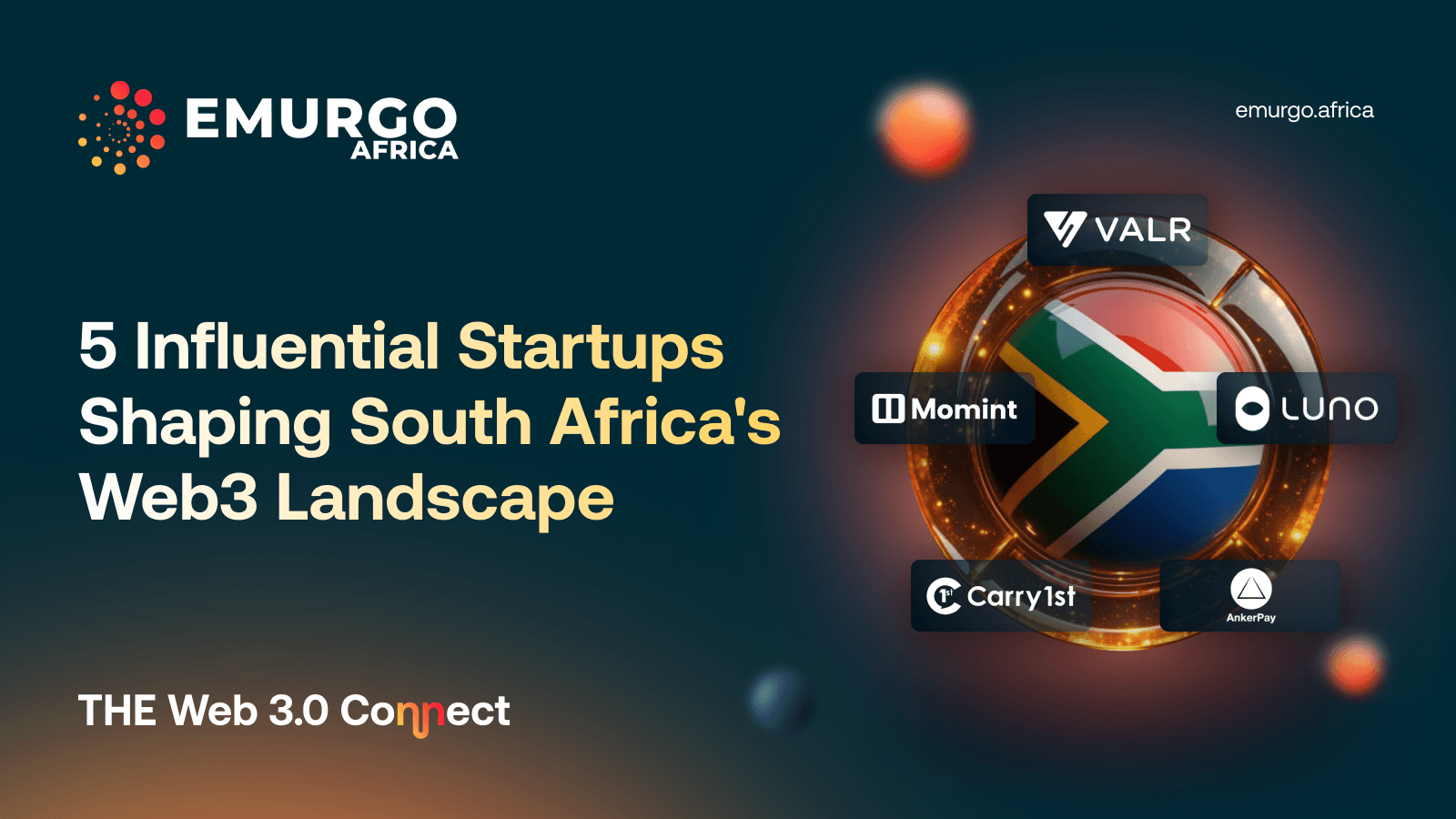You can also read the related posts:
Africa Socio-Economy Overview 2023 with Full Data Set
State of Crypto Adoption in Africa 2023
RealFi - the fusion of traditional finance and DeFi
Hope you enjoy them as well!
What do you think the blockchain industry in Africa will look like in 5 years? Do you think blockchain will be part of the technological infrastructure of everyday life by 2028? Today we will look at current blockchain projects and venture funding in Africa to grab a key ️to answer those questions!
🗝️
In summary, more than half of Africa's blockchain projects are in the fintech sector, followed by exchange, verification, and software development. Nigeria has become the hottest spot on the African blockchain scene, taking a big lead over South Africa and Kenya. Many blockchain startups were founded after 2017. Blockchain networks also started being more active in Africa last year. African governments also got involved in blockchain projects especially in last two years. The most popular field of governments' blockchain projects is ID/registration, followed by digital infrastructure and digital currency. Increasing inflow of blockchain funds in Africa has been observed in the last few years.
You can read the topics you are interested in below for more detailed explanations and data 👇🏾😉
Table of Contents:
- Blockchain Projects in Africa
- Projects by Blockchain Network
- African Governments' Projects
- Blockchain Venture Funding in Africa
1. Blockchain Projects in Africa
Figure 1 shows the field, country of headquarter, and founded year of 62 blockchain projects whose service mainly targets the users in Africa. Among 62 projects, 32 projects are in the field of fintech; 8 are in exchange; 7 are in verification; 6 are in software development; 4 are in DeFi; 2 are in entertainment. Other fields include mining, NFT, and protocol. 27 projects among 62 have their headquarters in Nigeria, followed by 7 in South Africa, 6 in USA, 5 in Kenya, and 4 in UK. Most of projects were founded after 2017. 12 projects have launched in 2020 and 2019; 10 launched in 2018; 9 in 2017; 7 in 2021.
Figure 1. African Blockchain Projects Overview

Source: Author's research based on Crunchbase as of November 30, 2022
Figure 2, 3, 4, 5, and 6 show the total blockchain funding and median amount of fund by fundraise round in the field of fintech, exchange, verification, software development, and DeFi and other respectively. The figures show the major area of blockchain funds is in fintech and exchange so far; the median amount of fund in exchange is much higher than fintech. The fintech projects include payment, digital bank, lending, bookkeeping etc. Many of these are mobile app services, which aim to lower the barriers to entry for crypto for the average consumer and to spread crypto to the general population in one fell swoop. Areas of verification projects include medical and pharmaceutical data, real estates, natural resources etc. More projects related to verification have been done by African governments than private companies. For more detail of African governments' projects, check out the section 3 below. There are limited number of DeFi, NFT, gaming, and other entertainment projects. It is probably because those projects do not necessarily limit their targets to African market but are more open to global market.
Figure 2. Blockchain Funding in Fintech

Source: Author's research based on Crunchbase as of November 30, 2022
Figure 3. Blockchain Funding in Exchange

Source: Author's research based on Crunchbase as of November 30, 2022
Figure 4. Blockchain Funding in Verification

Source: Author's research based on Crunchbase as of November 30, 2022
Figure 5. Blockchain Funding in Software Development

Source: Author's research based on Crunchbase as of November 30, 2022
Figure 6. Blockchain Funding in DeFi and Other

Source: Author's research based on Crunchbase as of November 30, 2022
2. Projects by Blockchain Network
Figure 7, 8, 9, 10, and 11 show the activities in Africa by Binance, Stellar, Algorand, Celo, and Near and Polygon respectively. Although each network has different strengths and strategy in Africa, they have gotten more active in Africa last year. The activities are not limited to investments and grants but also education, scholarship, pilot projects with related organizations etc. Especially, the opportunities for African developers to learn and build blockchain solutions have increased significantly.
Figure 7. Binance Activities in Africa

Reference: Research by Adaverse as of November 2022
Figure 8. Stellar Activities in Africa

Reference: Research by Adaverse as of November 2022
Figure 9. Algorand Activities in Africa

Reference: Research by Adaverse as of November 2022
Figure 10. Celo Activities in Africa

Reference: Research by Adaverse as of November 2022
Figure 11. NEAR & Polygon Activities in Africa

Reference: Research by Adaverse as of November 2022
3. African Governments' Projects
There found 29 blockchain projects undertaken by African governments. Figure 12 shows the field, country of headquarter, and founded year of 29 projects. The most common government project is in the field of ID/registration followed by digital infrastructure and currency. 4 projects have been done in Zimbabwe; 3 in DR Congo and Zambia; 2 in Nigeria, Ghana, Sierra Leone, and Rwanda. 8 projects have been served in 2022; 7 conducted in 2021 and 2018; 3 in 2019.
Figure 12. African Governments' Blockchain Projects Overview

Source: Author's research as of November 26, 2022
Table 1, 2, 3, and 4 show the list of African governments' blockchain projects in the area of ID/registration, digital infrastructure, currency, and others respectively. Because national ID infrastructure has not yet been established and maintained well in most of African countries, and it is the reason why people have limited access to the financial and public services, ID/registration sector is one of the core blockchain projects by African governments. Governments' digital infrastructure projects include IP exchange, tax collection, governance digitalization, natural resource and agricultural market etc. More African countries are exploring or in the pilot phase of a digital currency. For more information about Central Bank Digital Currency (CBDC) and crypto regulation in Africa, you can read Bi-Weekly Report Vol.2. Crypto Adoption in Africa. Other governments' projects are P2E gaming, music, medical and natural resource supply chain, and election.
Table 1. Governments' Blockchain Projects in ID/Registration

Source: Author's research as of November 26, 2022
Table 2. Governments' Blockchain Projects in Infrastructure

Source: Author's research as of November 26, 2022
Table 3. Governments' Blockchain Projects in Currency

Source: Author's research as of November 26, 2022
Table 4. Governments' Blockchain Projects in Other

Source: Author's research as of November 26, 2022
4. Blockchain Venture Funding in Africa
Figure 13 shows the venture capitals who actively invest in blockchain projects in Africa. Increasing inflow of blockchain funds in Africa has been observed in the last few years, and more new blockchain funds for African startups are planning to come in this year.
Figure 13. Blockchain Venture Funding in Africa

Source: Author's research as of November 26, 2022
Hope you enjoyed learning blockchain projects in Africa and imagining the future of blockchain industry! 🚀✨
Follow EMURGO Africa for more information

EMURGO Africa invests and supports local Web3 projects in the region to adopt Cardano’s decentralized blockchain technology to build socially impactful solutions.
As a regional entity of EMURGO, the official commercial arm of Cardano, EMURGO Africa also runs a local Cardano accelerator in Africa, Adaverse, which accepts applications year-round.
For more up-to-date information on EMURGO Africa, follow the official channels listed below.
About EMURGO Africa
- Official Website: emurgo.africa
- Twitter: @EmurgoAfrica
- Telegram: https://t.me/emurgoafrica



